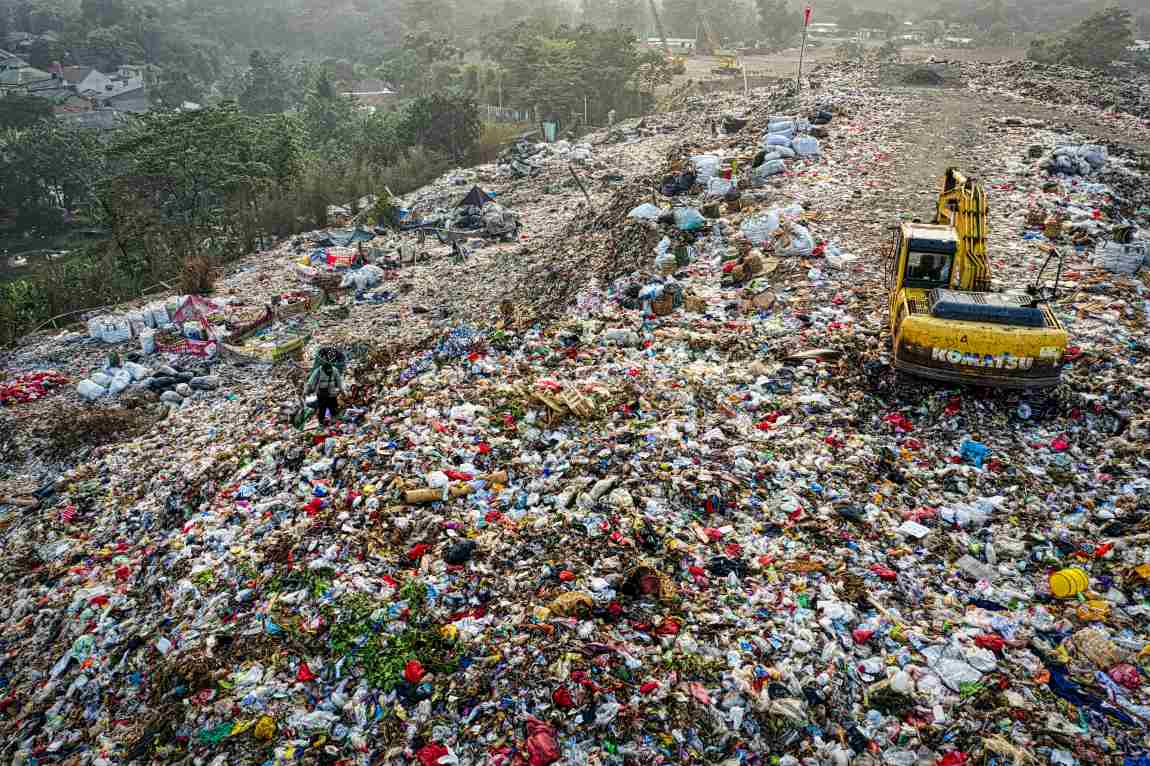It wants the new treaty to address the adverse impacts of plastic pollution on the environment and human health.
The Commission is participating in the final negotiations on the Global Plastics Treaty (INC-5) from today until 1 December in Busan, South Korea, with the aim of reaching an agreement on a global instrument tackling plastic pollution.
Together with G20 partners, the EU remains committed to concluding the negotiations and engaging with other parties to achieve the treaty’s conclusion by the end of the year.
Executive Vice-President for the European Green Deal, Maroš Šefčovič said: “Plastics are choking our oceans, polluting the environment and harming people’s health and livelihoods. If business as usual continues, plastic production will triple by 2060. We need coordinated global policies to change plastic production and consumption patterns in a way that delivers for people and the planet.
“We now have a chance to demonstrate how we can take action jointly to promote a more circular and sustainable economy for plastics. The EU is ready to engage with other parties and build bridges for agreeing a global treaty by the end of the year.”
EU priorities for a Global Plastics Treaty
For the EU, the new treaty must address the adverse impacts of plastic pollution on the environment and human health. In its Global Plastics Outlook from 2022, the OECD suggests that plastic leakage to the environment is projected to double to 44 million tonnes (Mt) per year, exacerbating environmental and health impacts.
Greenhouse gas emissions from plastics production and use are also projected to more than double to 4.3 Gigatonnes (Gt) CO2e. This must be addressed by turning off the tap.
The EU proposes requirements for countries to address the high and unsustainable levels of primary plastic polymer production, supported by obligations to improve the plastics industry’s circularity.
The EU strongly calls upon world leaders to converge around a structure in the new instrument that addresses plastic production comprehensively. It must include rules on the elimination of chemicals of concern in plastics, bans and phase-outs on problematic products, such as certain single-use plastic products.
More than 127 countries had already introduced rules on single-use plastics before the negotiations started, according to the United Nations Environment Programme (UNEP).
Restrictions should also be supplemented with criteria and rules that support countries towards more circular and sustainable product design.
Intentionally added microplastics in products should be banned. This approach aims to prevent plastic pollution in the marine and other environments, which is key to addressing biodiversity loss.
The EU emphasises the “Polluter Pays Principle”, advocating for major producers to bear their share of the financial responsibility for plastic pollution. Existing financial arrangements and private sector contributions should be used for the implementation of the future agreement.
Finally, extended producer responsibility schemes and the scaling-up of waste management structures are key measures to succeed.
While strong legally binding measures are needed globally, the EU emphasises that upon entry into force, effective implementation should consider the different national circumstances and the need for a just transition.
Background
Leaders of the G20 who met in Rio de Janeiro on 18-19 November 2024 stated in their final declaration the ambition of working together to conclude the negotiations of an international legally binding instrument on plastic pollution by the end of 2024.
The final text of the Treaty on global plastics pollution is expected to be concluded during the fifth session of the INC taking place in Busan, South Korea, from 25 November to 1 December 2024.
To mobilise support, the EU is actively involved in the High Ambition Coalition to End Plastic Pollution, which includes 65 countries committed to aiming high in the negotiations to end plastic pollution by 2040.
Plastics are important materials for our economy and daily lives. However, the exponential growth of production and consumption of plastics in recent decades is having serious negative effects on the environment and human health.
According to UNEP data from 2021, global plastic production amounts to some 400 Mt per year. Yet only an estimated 12% of the plastics produced have been incinerated and only 9% recycled. The remainder has either been disposed of in landfills or released into the environment, including the ocean. Significant stocks of plastics have already accumulated in aquatic environments, with 109 Mt of plastics accumulated in rivers, and 30 Mt in the ocean.
The adoption of a legally binding instrument to end plastic pollution is a key priority of the EU’s Circular Economy Action Plan under the European Green Deal.
Article Source:
Press Release/Material by Directorate-General for Environment | Contact
Featured image credit: Tom Fisk | Pexels
Disclaimer:
This press release is not a document produced by Muser Press. Muser Press shall not bear responsibility for its content. In case you have any questions about this press release, please refer to the contact person/entity mentioned in the text of the press release.




